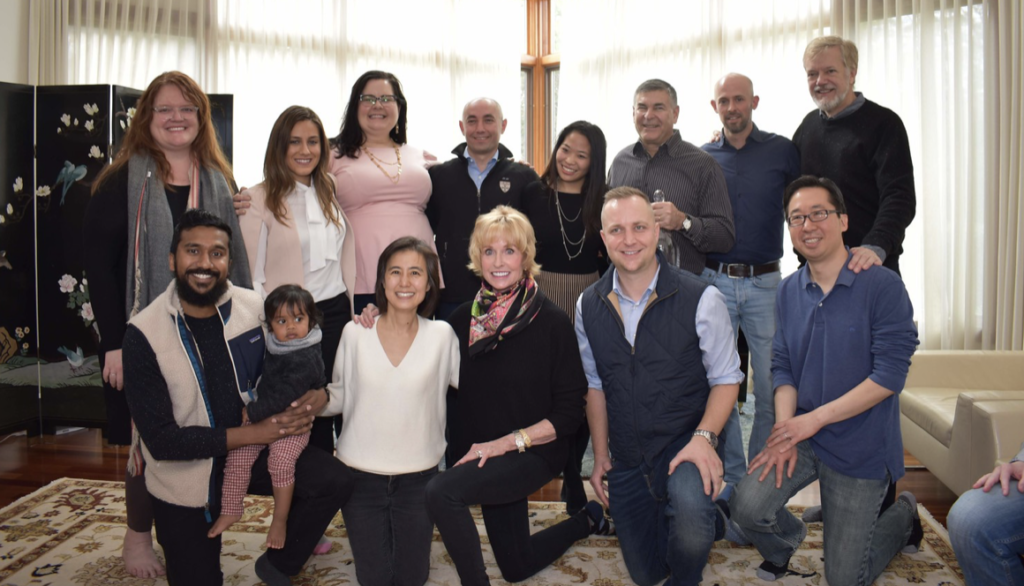Mike Brown’s recent nomination for Undersecretary of Defense for Acquisition and Sustainment shows the power of IFE’s support of the Tech-in-Gov movement.

In early April, we got the news: Michael Brown, former CEO of Symantec and White House Presidential Innovation Fellow, and current director of the Pentagon’s Defense Innovation Unit, was nominated for Undersecretary of Defense for Acquisition and Sustainment at the Department of Defense. Here at the Institute for Education, we were thrilled not just because Mike is a proven leader, though that is certainly the case, but because Mike’s unique career path exemplifies the maturity of civic tech in government — a movement we’ve supported for years.
Mike’s trajectory from the private tech industry into civic tech leadership is part of a brilliant, emerging trend of civic tech service tours by talented individuals with deep private sector experience. Historically, the U.S. government has struggled to keep pace with tech innovation when compared with private sector offerings. While we do have some exceptional tech talent in the U.S. government, their numbers are not large enough to fill a growing need, especially in senior leadership positions. Recruitment of this caliber of talent is a challenging and ongoing endeavor. One approach has been the Presidential Innovation Fellows (PIF) program, an opportunity for those with tech expertise to join the U.S. government for a year-long tour.
The PIF program was founded in 2012 by then-U.S. CTO Todd Park and spearheaded by then-Senior Advisor for Innovation John Paul Farmer (current NYC CTO and IFE steward). Erie Meyer, technology advisor for Commissioner Rohit Chopra at the Federal Trade Commission and co-founder of U.S. Digital Service, describes PIF as a “try it” position in her recent article, ”So You Want to Serve Your Country: A (biased) Guide to Tech Jobs in Federal Government.” The trial works in both directions: the program allows mid-career and senior tech leaders (often from innovative companies like Microsoft, Apple or Google) to work in the federal government for a year, and it empowers agencies to “try” having talented entrepreneurs-in-residence team up with career civil servants with complementary talents. This can be a valuable, rewarding experience for all involved — “Working alongside passionate, motivated, do-good innovators to make an important change in government has been an absolute honor,” Clarice Chan, a 2019–2020 PIF says. “This community makes me proud.”
It was through the PIF program that Mike initially moved from a successful career in the private sector into government, serving at the Department of Defense from 2016 to 2018. During this fellowship, he co-authored the influential report, “Exploring China’s Technology Transfer Strategy,” which concludes that in order to maintain its international competitive edge, the U.S. must increase its investment in federally-funded research and recruiting to drive a growing pipeline of innovations and technology breakthroughs. After his time as a PIF, Mike stayed in government, stepping up to lead the Defense Innovation Unit — the Pentagon’s Silicon Valley outpost focused on helping the U.S. military identify and obtain relevant emerging technologies.
In the nominated role of Undersecretary of Defense for Acquisition and Sustainment at the Department of Defense, Mike will oversee the DOD’s acquisition programs and contractors working for the agency. Given his experiences as a PIF and as the former CEO of Symantec, Mike is well-positioned for this job — he speaks both the language of private sector tech and the language of government, and is one of those extraordinary individuals who can bridge both worlds.
On a larger scale, Mike’s nomination is emblematic of a hopeful trend in which civic-minded technologists come to government for a short tour of duty and end up sticking around — often in high-profile leadership roles. Recruiting and retaining tech talent have potentially important implications for the way our government works, including citizen-facing services like paying taxes with ease, voting, getting your Covid-19 vaccine, accessing your health care records, or obtaining car parking permits. All this is possible, as countries like the tech-savvy Estonia have shown us, but it takes having tech-minded people at the table — fully empowered to share their ideas and expertise.
By Coach Kathy Kemper | Posted on Medium.com, June 6, 2021 | 3 minute read
